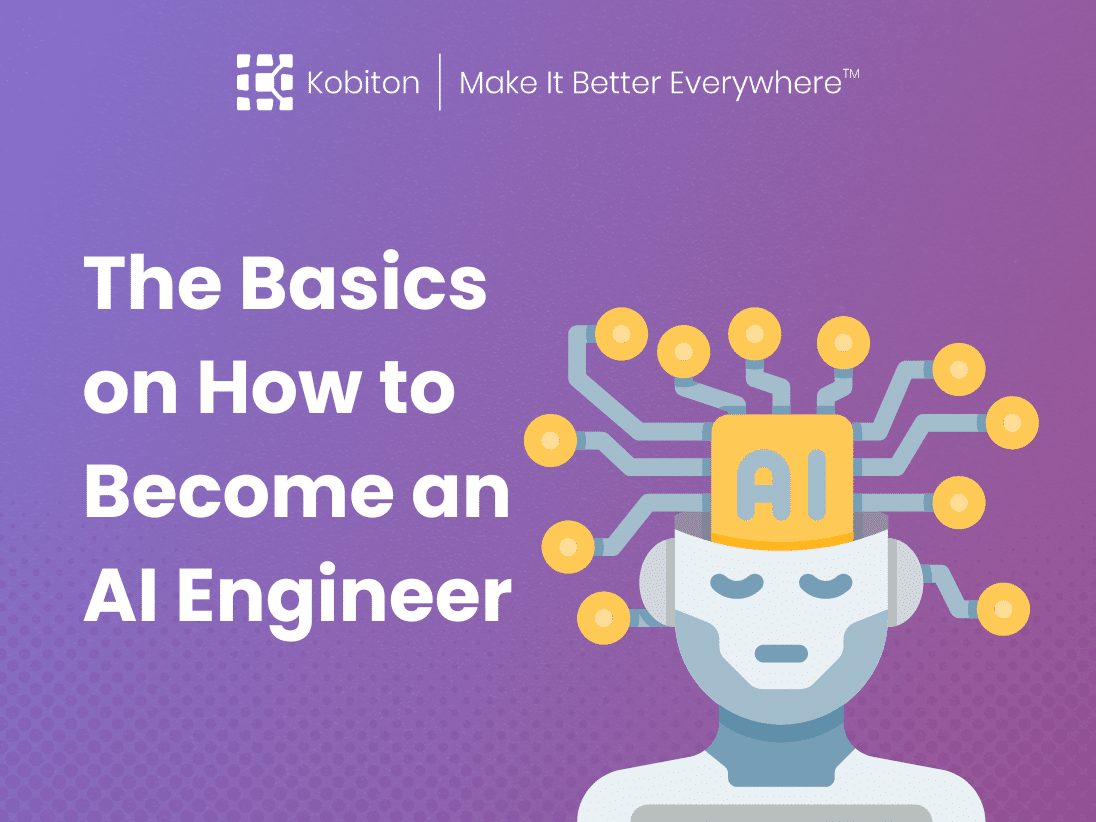
The Basics on How to Become an AI Engineer

Adam Creamer
It’s commonplace for hardworking individuals to discuss how antiquated the concept of working for the same organization for 35 years, collecting their gold watch, and journeying off into retirement is. What’s becoming even more normalized in the workplace is the idea that not only will workers shift companies in an effort to grow and develop in their career path, but that their career path, itself, may alter multiple times over the course of a work life, sometimes in very dramatic ways.
For the detail-oriented, attentive personality that loves engaging with genuine problem-solving, a career as a software test engineer could be an excellent match for a transition. For those interested in how to become a software test engineer, you might be keen to know the foundational concepts and roles that you could expect to find in such a position. While there are plenty of missteps that new testing engineers make upon entering the field, understanding the importance of code quality, embracing a personable culture, and realizing the holistic aspects of being a test engineer are most vital to your success in the industry.
So what does it take to become a software testing engineer? In general, you can expect the majority of companies to prefer candidates that hold a bachelor’s degree. The plus side is that while many companies will request and prioritize candidates with a background in engineering, mathematics, or computer science, the demand in the field is so high that plenty of successful software test engineers in the field hold degrees in the humanities and social sciences. Just as well, plenty of companies are recognizing that the problem-solving skills required in software test engineering can manifest in a multitude of ways, and that having experience in an unrelated field can in fact be a positive. Unique backgrounds and approaches have become something that companies seek out in a tester, inviting professionals from fields, such as education and nonprofit management, to bring their training and experiences for a fresh take on the process.
While entering the field can have a variety of paths, to advance in the field you can expect to need roughly three to six years of software testing experience or appropriate education. Advanced degrees and certifications are excellent ways to continue your training and push your career path forward once you become a software test engineer.
A background in coding will be necessary to get your foot in the door. In 2022, this is easier than ever. You can take an online course at a university, attend a coding boot camp in the evenings, or simply teach yourself and develop projects on sites, like Github, to demonstrate your proficiency to an interested employer. While there are plenty of coding languages to learn, your best bet is to stick with just one in the beginning and learn it inside and out; you’ll find that it will make learning the next one all the easier. JavaScript or C# are great places to start for automation testing.
For software test engineers, you will need a working proficiency in Linux commands, due largely to the fact that the majority of software applications are deployed via Linux machines. Understanding databases and SQL are also important; you can expect to do basic SQL queries and other data checks since that software typically runs with loads of data present in the background.
To really stand out in an interview and become a software test engineer, utilizing proper test management techniques and tools is necessary. A working knowledge of defect tracking tools, logging, and tracking defects, with Bugzilla or Jira, is critical to your success as a test engineer. Being able to understand and use automated and performance testing right out of the gate is a general expectation in the testing field. This can be learned by downloading trials of testing tools to do self-taught work on your own, or it can be picked up in an online course about software testing. Either route, it is imperative to practice your coding and automating efforts.
There are plenty of software engineering jobs out there, and that number is expected to rise by almost double-digits in the coming years (according to the Bureau of Labor Statistics). The benefit of focusing on software test engineering is that you get to interact with products before they hit the market, essentially serving as the gatekeeper to ensuring the success of a product. You get to troubleshoot and problem-solve along the way, thinking analytically and developing new skills to assess and remedy problems as you progress through a project. The future of software testing is only trending up; if you’re eager to learn and hone in on the skills to meet it on the way, why not hop on for the ride?